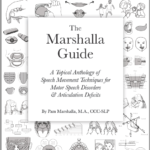Assessing Children Adopted from Abroad

I came across this article on ASHAsphere and wanted to share. The article Relationship and Communication Development in Children Adopted From Abroad by Deborah HWA-Froelich focuses on the uniqued differences in overall language development in children who are adopted from other countries.
I’ve worked with children who have come from other countries who speak both languages in the home and those that acquired english early on after listening and possibly speaking (or beginning to speak) in another language. As Ms. Froelich points out, the foreign adopted children experience a disruption in language development. I know from experienced that these children, when brought to my attention, are clearly more language disabled than the typical ESL/ELL child.
ESL/ELL children have their own set of issues. I see a lot of splinter skills in their vocabulary and comprehension especially if the second language was introduced early, before their native language was firmly developed. However, most typical ESL/ELL students improve and compensate without intensive services. ESL/ELL students usually demonstrate typical pragmatic skill development and interact well in their environment.
We all know that children who are exposed to some type of neglect and abuse are going to have difficulty developing in some if not many ways. This is an added layer, to the development of a child from a foreign adoption that must be considered as part of their profile.
School’s need to be cautious and thorough when assessing the needs of a child from a foreign adoption. Teams will almost always initially assume it is ELL/ESL issue without a complete evaluation. When this happens precious months or years are wasted. I believe the two points made by Ms Froelich, probable abuse/neglect with foreign adopted children (or at least the lack of nurturing at at early age) and the complete disruption in language development are two very valid reasons to conduct a complete Core evaluation on a struggling student with history of foreign adoption.
English is more than likely the dominate language at that point so evaluations should be conducted in English. Look at the child as a language disabled student when planning what test measures to use. If the students are very young when initially tested do not assume that language/learning development will progress as naturally as native speakers. Overall development of foreign adopted children needs to be monitored closely throughout the school years. We know that children who have difficulty acquiring language as young children often experience difficulty down the road with development of higher order language.
When you assess these students do not be surprised at if you see atypical test results. Scores will not fall into the typical patterns you expect, scores may be quite low, scattered and errors will appear throughout many areas of language. Do your best to interrupt the scores and develop a plan. Keep in mind that no matter how enriching their environment is now, these children have missed out and do not have the experiences to draw from to aid consistent development.







